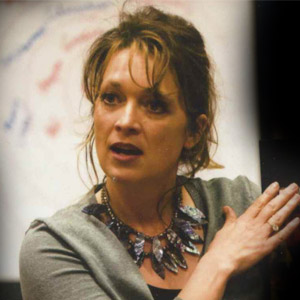Imagine the humiliation this child felt, and how it might impact his attitude toward school, teachers, principals, etc., for such an attack on him, on his childhood. Institutionalized Racism is where we make/have rules and policies that only or especially apply to blacks and other people of color (ex: hair styles, shaving regulations, etc., that people of color may not be able/willing to accommodate).
First, this policy is unclear (perhaps by design). Second, it leaves enough room for an innocent child to be treated abusively because of some grown fool's lack of common sense! This is intentional humiliation. All one has to ask to get clear is, "What if this was my child, would it be acceptable treatment?" then ask, "Would anyone dare do this to my child?" If the answer is no, you may have the benefit of privilege.
This is another example of 1. Privilege (to NOT be questioned about simple hair styles) I have worn a zig/zag part, and it was considered fashionable, not counter-cultural. I have privilege, this six year old child does not. He has a distinct undeserved disadvantage to NOT have the privilege of positive assumptions being made about him or his hair.
2. Differential treatment -Lack of privilege leads to differential treatment. Would your child be suspended over a haircut without so much as a call to you before the fact?
3. What of the Pygmalion effect and Self Fulfilling Prophecy - We (grown adults) bear the responsibility for how this child sees himself by the time he becomes a man.
4. Unrepresentative Policy gone askew-there may be a need for a hair/dress, code in school to foster the best learning environment. But when people sit around a table and make policy, often the people affected most are not allowed to have a seat at the table. As a result, foolish and (perhaps) unintended consequences occur because of they are excluded from policy conversations. Perhaps it is cultural ignorance, or callous disregard of the people who DO have a seat at the table.
EXAMPLE: "No Beard" policies negatively impact many men of color. They may keep men from getting jobs or advancing in organizations. "Why is it a problem to just shave it off if you need a job?" you may ask. Infections, ingrown hairs, and scarring are the result of shaving for many people of color. This type of policy is either intentionally designed to keep men of color out of the organization or ignorantly designed by people who don't know men of color. BTW, organizations have lost huge lawsuits over this policy as a deliberate attempt to prevent or impair the access of men of color to the organization and the ladder of success within organizations.
Back to this cute little guy, who could easily be one of my grand children. This type of treatment over a hair part (and whatever stereotypical perception it triggers in the disciplinarian in this case) only serves the purpose of keeping young black boys and men from feeling welcome, from so much as the permission of expression found in a stylish hair cut in their learning institutions. Ultimately, it is an attack on identity, an identity that of a necessity must be protected. He is a child, a cute child, a good child, a smart child. Let's help him keep believing good about himself so he and we all can reap the benefits of him being a healthy, educated, happy young man in a few years.
Talking is a good place to begin critically examining these scenereos. Let's talk about it. Let's listen. Let's think. Let's feel. Let's empathise with the children of the "other." Then maybe we will change ourselves . . . and do away with some of this nonsense in the world.


Post Comments